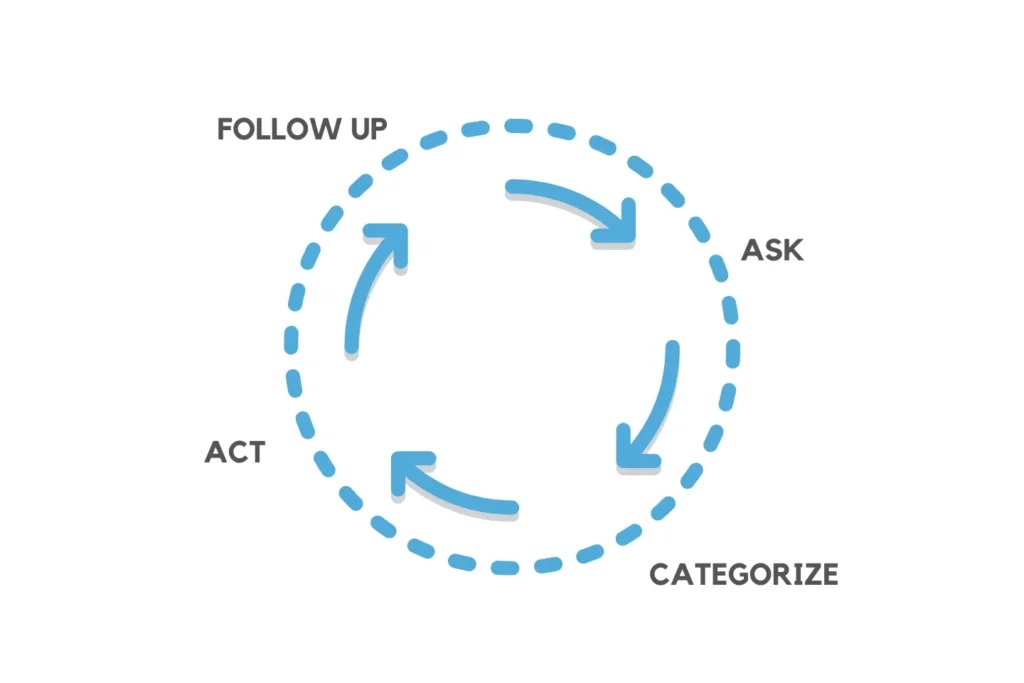Guests often rely on online reviews and feedback to make informed decisions about where to stay. As a hotelier, mastering the art of responding to guest feedback can significantly impact your hotel’s reputation and success. This comprehensive guide will provide you with the best practices for handling hotel guest feedback, along with templates for dealing with both positive and negative reviews.
Understanding Hotel Guest Feedback
Hotel guest feedback encompasses all the comments, reviews, and ratings that guests leave about their experience at your hotel. This feedback can be found on various platforms such as Google Reviews, TripAdvisor, Yelp, and social media channels. Understanding and analyzing this feedback is crucial for improving your hotel’s services and maintaining a positive reputation.
Why Hotel Guest Feedback Matters:
1. Influences Booking Decisions
Potential guests rely heavily on online reviews and feedback when choosing a hotel. Positive hotel guest feedback can be a powerful marketing tool, attracting new guests who are looking for assurance about their stay. Conversely, negative reviews can deter potential guests, making it imperative to manage and respond to feedback effectively.
- Trust and Credibility: Reviews from previous guests add a layer of trust and credibility that traditional advertising cannot match. Potential guests view these reviews as authentic experiences, which significantly influence their booking decisions.
- Comparison Shopping: Guests often compare multiple hotels before making a booking. Positive reviews can tip the scales in your favor, while a series of negative reviews can lead potential guests to choose your competitors instead.
2. Provides Insight
Guest feedback offers invaluable insights into what your hotel is doing well and where improvements are needed. This real-time feedback loop is essential for continuous improvement.
- Identify Strengths: Positive feedback highlights your hotel’s strengths, such as outstanding service, comfortable rooms, or excellent amenities. This information can be used to market these strengths more effectively.
- Uncover Weaknesses: Negative feedback sheds light on areas that require attention, such as slow check-in processes, unclean rooms, or unresponsive staff. Recognizing these issues allows you to take corrective actions promptly.
- Enhance Guest Experience: By analyzing feedback, you can identify trends and recurring issues that may not be evident from day-to-day operations. This helps in making informed decisions to enhance the overall guest experience.
3. Builds Trust
Responding to feedback shows that you value your guests’ opinions and are committed to providing excellent service. This transparency and engagement can significantly boost your hotel’s reputation.
- Engagement and Loyalty: When guests see that their feedback is acknowledged and acted upon, they feel valued and are more likely to become repeat visitors. Engaging with guests through responses to their reviews fosters a sense of loyalty and community.
- Public Relations: Publicly responding to reviews, both positive and negative, demonstrates your commitment to customer satisfaction. Potential guests reading these interactions can see that your hotel is proactive and caring, which builds trust and confidence.
- Reputation Management: Effective management of guest feedback can prevent negative reviews from escalating into bigger issues. Addressing concerns publicly and promptly shows that you are attentive and dedicated to improving your services.

The A.C.A.F. Guest Feedback Loop Method
One effective method for managing guest feedback is the A.C.A.F. (Acknowledge, Clarify, Ask, Follow-up) feedback loop. This approach ensures a structured and comprehensive response to guest feedback, helping to improve guest satisfaction and foster loyalty.

- Acknowledge
Start by acknowledging the guest’s feedback. This shows that you value their opinion and are attentive to their comments. Whether the feedback is positive or negative, acknowledging it is the first step in addressing their concerns.
- Clarify
Seek to understand the specifics of the feedback. Ask clarifying questions if needed to ensure you fully comprehend the guest’s experience. This step is crucial for accurately addressing their concerns and providing a relevant response.
- Ask
Encourage the guest to provide additional details or suggestions on how you can improve their experience. This not only shows your commitment to improvement but also makes the guest feel involved and valued.
- Follow-Up
After addressing the guest’s feedback, follow up to ensure that their concerns have been resolved to their satisfaction. This demonstrates an ongoing commitment to their satisfaction and can turn a negative experience into a positive one.
Mediums of Collecting Guest Feedback
Gathering guest feedback is crucial for hotels to understand their guests’ experiences and make necessary improvements. Various mediums are used to collect this valuable information, each with its unique benefits and challenges.
Comment Cards
Traditional yet effective, comment cards are placed in guest rooms or at reception. Guests fill these cards out with their thoughts about their stay. They offer a personal touch and provide a tangible record of feedback, but they can be time-consuming to fill out and may be overlooked by guests.
- Pros: Personal touch, tangible record.
- Cons: Time-consuming, may be overlooked by guests.
Feedback Forms
These paper forms are typically distributed during check-in or check-out. They ask for detailed feedback on various aspects of the guest experience. While structured and capable of providing in-depth responses, feedback forms can be seen as outdated and might suffer from lower response rates.
- Pros: Structured, detailed responses.
- Cons: Can be perceived as outdated, lower response rates.

Online Surveys
Sent via email or accessible through links, online surveys collect digital feedback from guests. They are convenient for both guests and hotel staff, allowing for quick and easy analysis. However, they can be ignored in crowded inboxes and require internet access.
- Pros: Convenient, quick analysis.
- Cons: May be ignored, and requires internet access.
Guest Messaging
Utilizing SMS or messaging apps, this medium allows hotels to gather feedback directly from guests’ phones. It boasts a high response rate due to its convenience, though it can be intrusive if not timed correctly and may require careful management to avoid annoying guests.
- Pros: High response rate, convenience.
- Cons: May be seen as intrusive, timing issues.
Social Media
Hotels gather feedback from guests through comments, direct messages, and reviews on social media platforms. This method offers wide reach and real-time interaction, but it requires active management and the ability to handle public visibility of feedback, both positive and negative.
- Pros: Wide reach, real-time responses.
- Cons: Public visibility, requires active management.
Automated Feedback Systems
Integrated systems like apps, in-room tablets, or kiosks collect feedback in real-time. These systems provide detailed and immediate data but come with higher setup costs and potential technical issues that need managing.
- Pros: Immediate feedback, and detailed data.
- Cons: High setup cost, and technical issues.
Best Practices for Handling Hotel Guest Feedback
1. Prompt Response
Responding to guest feedback promptly is essential. It shows that you care about your guests’ experiences and are eager to address any concerns they may have.
Timeliness: Aim to respond to feedback within 24-48 hours. This quick response time demonstrates your commitment to guest satisfaction.
Efficiency: Use notification systems to alert you when new feedback is posted, so you can respond swiftly.
Use Bots and AI for Initial Responses
Implementing chatbots or AI-driven tools can help you send immediate acknowledgments to guest reviews. While personalized follow-ups are still necessary, these tools can bridge the gap when immediate human response is not possible.
Use Notification Systems to Set Up Alerts
Set up alerts to notify you whenever new feedback is posted. This ensures that you can respond swiftly.
There are several tools available that can help you monitor and manage guest reviews and feedback:
| Tool | Description |
| Google Alerts | Set up alerts for mentions of your hotel on review sites and social media platforms. |
| Reputation.com | A comprehensive reputation management tool that monitors reviews and sends notifications. |
| ReviewTrackers | Monitors reviews from over 100 sites, providing real-time alerts and analytics. |
| TrustYou | Aggregates reviews from multiple sources and alerts you to new feedback for quick response. |
| Birdeye | All-in-one reputation management tool offering automated review responses. |
2. Personalization and Empathy
Personalizing your responses and showing empathy can turn a neutral or negative experience into a positive one. Here are some tips and tools to help you personalize your responses and demonstrate empathy effectively:
Address guests by their names
Using a guest’s name in your response makes it more personal and shows that you value them as individuals. This small gesture can make a significant difference in how your response is perceived.
Mention specific details
Refer to specific comments or issues mentioned in the guest’s feedback. This shows that you have read and understood their feedback, and are taking their comments seriously.
Express understanding and concern
Acknowledge the guest’s feelings and show that you care about their experience. Empathy can help to defuse negative emotions and demonstrate that you are committed to improving their experience.
Use CRM systems
Customer Relationship Management (CRM) systems like Salesforce or Zoho CRM can help you track guest interactions and tailor your responses based on their previous stays and preferences.
Follow up
After addressing a guest’s concerns, follow up with them to ensure their issues have been resolved. This shows an ongoing commitment to their satisfaction.
3. Transparency and Accountability
Being transparent and accountable in your responses builds trust and credibility with your guests. This approach shows that you are committed to providing excellent service and are willing to make improvements based on guest feedback. Here are some tips and tools to help you maintain transparency and accountability:
Take responsibility
If feedback highlights a mistake or issue, acknowledge it and take responsibility. This shows guests that you are honest and willing to admit when something goes wrong.
Detail your response
Inform the guest about the specific steps you are taking to address their concerns. This transparency helps guests understand that their feedback is taken seriously and that you are committed to making improvements.
Provide clear solutions or compensation
Offer tangible solutions or compensations to resolve the issue and enhance the guest’s future experiences. This not only resolves the current problem but also demonstrates your commitment to guest satisfaction.
Crafting Effective Hotel Review Responses
1. Responding to Positive Reviews
Positive reviews provide a great opportunity to reinforce the guest’s positive experience and encourage them to return. Here’s how to craft effective responses to positive feedback:
- Acknowledge and Appreciate: Start by thanking the guest for their review and their stay at your hotel. Mention specific details they appreciated during their stay to show you read and valued their feedback.
- Reinforce the Positive Experience: Highlight the aspects of their stay that they enjoyed and emphasize your commitment to maintaining those standards.
- Encourage Future Visits: Invite the guest to return and offer incentives if possible, such as discounts or complimentary services.
- Express Gratitude: Show gratitude for their positive words, reinforcing their positive feelings and encouraging them to share more reviews in the future.
Helpful templates to respond to positive feedback
Template 1: General Positive Response
| Dear [Guest Name], Thank you for your wonderful review! We are delighted to hear that you enjoyed your stay with us and appreciated [specific aspect they mentioned]. Your kind words motivate us to continue delivering exceptional service. We look forward to welcoming you back to [Hotel Name] on your next visit. Best regards, [Your Name] [Your Position] |
Template 2: Inviting Return Visits
| Dear [Guest Name], We are thrilled to hear that you had a fantastic stay at [Hotel Name]. It was a pleasure having you with us, and we hope to welcome you back soon. As a token of our appreciation, please enjoy a [discount/complimentary service] on your next visit. Warm regards, [Your Name] [Your Position] |
Template 3: Expressing Gratitude
| Dear [Guest Name], Thank you for taking the time to share your experience. We are grateful for your kind words and thrilled that you enjoyed [specific aspect]. Your feedback is invaluable to us. Thank you for choosing [Hotel Name], and we hope to see you again soon. Best wishes, [Your Name] [Your Position] |
2. Responding to Negative Reviews
Negative reviews require careful handling to resolve the guest’s issues and demonstrate to other potential guests that you are committed to improvement. Here’s how to craft effective responses to negative feedback:
- Acknowledge and Apologize: Start by acknowledging the guest’s concerns and sincerely apologizing for any issues they encountered.
- Take Responsibility: Take responsibility for any mistakes or shortcomings mentioned in the review. Avoid being defensive or making excuses.
- Explain Actions Taken: Inform the guest about the specific steps you are taking to address their concerns. This shows that you are committed to making improvements.
- Offer Solutions or Compensations: Provide clear solutions or compensations to resolve the issue and improve their future experiences.
- Follow-Up: Follow up with the guest to ensure their concerns have been fully addressed and to reinforce your commitment to their satisfaction.
- Learn and Improve: Use the feedback from negative reviews as an opportunity to identify areas for improvement and implement changes that enhance the guest experience.
Helpful templates to respond to negative feedback
Template 1: General response
| Dear [Guest Name], We are deeply sorry to hear about your disappointing experience at [Hotel Name]. Please accept our sincerest apologies for [specific issue]. This is not the standard of service we strive to provide. Thank you for bringing this to our attention. We value your feedback and will use it to improve our services. We hope to have the opportunity to provide you with a better experience in the future. Sincerely, [Your Name] [Your Position] |
Template 2: Apologizing Sincerely
| Dear [Guest Name], We are truly sorry to learn about the issues you experienced during your stay at [Hotel Name]. Please accept our heartfelt apologies for [specific issue]. Your satisfaction is very important to us, and we regret that we fell short of your expectations. We appreciate your feedback and are taking immediate steps to address this matter. Thank you for helping us improve our services. Warm regards, [Your Name] [Your Position] |
Template 3: Providing Solutions and Compensations
| Dear [Guest Name], We sincerely apologize for the inconvenience you experienced during your stay at [Hotel Name]. We appreciate your feedback and are taking immediate steps to address [specific issue]. As a gesture of goodwill, we would like to offer you [compensation] for your next visit. We hope to have the opportunity to provide you with a better experience in the future. Warm regards, [Your Name] [Your Position] |
Conclusion
Managing guest feedback is crucial for maintaining a high reputation in the hotel industry. It requires significant time and detailed analysis to understand and act on guest experiences effectively.
Utilizing traditional methods like comment cards and feedback forms, alongside modern techniques such as online surveys, guest messaging, social media interactions, and automated feedback systems, can provide comprehensive insights.
The strategies mentioned in the article will help streamline the feedback process and save time.
However, if you find yourself needing more assistance or tailored solutions, the DesigningIT team is here to help. Contact us for expert support in managing and optimizing your guest feedback processes.

